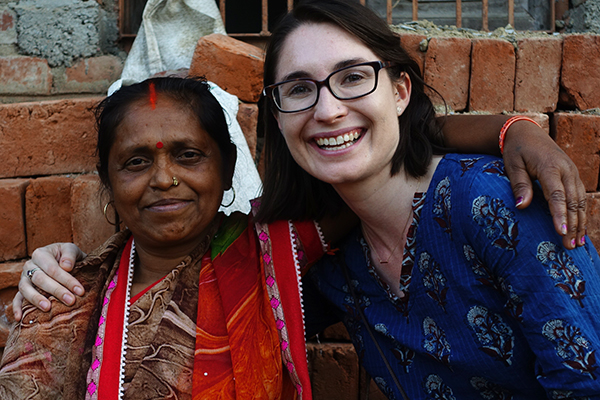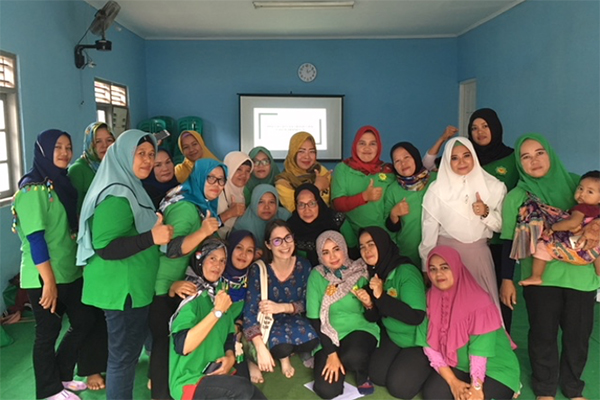From the field: meet Jessica Carter

Jessica Carter, Asia Health Program Director (right), in Uttar Pradesh, India with Asha, a community member participating in Opportunity’s health program.
Jessica Carter is passionate about making the world a better place. This passion has taken her everywhere from India and Bangladesh, to China and South Korea. After graduating from the University of Sydney, Jessica began her career working as a journalist, then moved into community development and health.
Today she is based in Hyderabad, India where she oversees Opportunity International Australia’s health programs throughout Asia. Local women are trained to become health leaders in their communities, allowing them to spread life-saving knowledge while earning an income to support their families.
We are focusing our community health leader training on COVID-19 prevention, ensuring people receive knowledge about how to reduce the spread of the virus.
Here Jessica explains why health education is so important in the fight to end poverty.
Q: What is the link between health and poverty?
JC: Health and poverty outcomes are completely interrelated. Poor health leads to lost income and education opportunities. Meanwhile, poverty limits access to quality and timely health care. Combining health with microfinance is important as it addresses both health and poverty.
Q: Why do Opportunity’s health programs focus on women?
JC: Women are often the household decision-makers around health issues – they might be more likely to make choices such as what’s for dinner that night or whether a child is too sick to go to school.
On top of this, gender inequality and poor health outcomes typically converge so that women and girls are worse affected by health issues – menstrual hygiene, poor sanitation practice and limited reproductive rights are just some of these. Therefore, targeting women with the goal of influencing health outcomes within the whole family is important.
"Prevention is better than cure."
Q: Why is health education so important during the COVID-19 pandemic?
JC: Prevention is better than cure – one of the reasons that we need to take such careful preventive measures is not to just to protect ourselves but also to protect the most vulnerable in our community. The COVID-19 outbreak has affected us all in many ways, but ultimately reminds us just how connected we are and that our community is global. Now more than ever we need to ensure everybody has access to basic health knowledge and care.

Jessica Carter (centre) in West Java, Indonesia with a group of community health leaders.
Q: What are you most proud of from your seven years at Opportunity?
JC: To date, we have reached more than 6 million people with health education, leading to improved health outcomes. That has been achieved by working with multiple program partners across three countries – India, Indonesia and Bangladesh.
My hope is that we can keep improving lives and unlocking the potential of so many women and children by reaching more people with the health knowledge and services they need.
There is a long way to go but if we can raise more funds to provide deeper support, we will go a long way towards our goal of ending poverty.
Learn more about our COVID-19 response